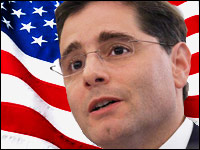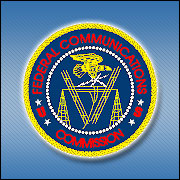
The Federal Communications Commission believes it has the authority to implement its National Broadband Plan — a wide-ranging initiative that calls for nationwide Internet services, greater availability of wireless connectivity, and improved rural access to such services — despite a recent court ruling that clouds the issue.
The U.S. Court of Appeals for the District of Columbia found that the FCC had not established its authority to order Comcast to change it network management practices. It vacated the FCC’s order, ratcheting up a fierce ongoing debate over Net neutrality.
However, FCC Chairman Julius Genachowski was sanguine about the setback in his testimony Wednesday to the U.S. Senate Commerce Committee, where he spoke about the agency’s approach to the National Broadband Plan.
“Notwithstanding the decision last week in the Comcast case,” he said, “I am confident that the Commission has the authority it needs to implement the Broadband Plan.”
Acknowledging that “flaws may have existed in the specific actions and reasoning before the court in that case,” Genachowski nevertheless said he believed that the Communications Act gave the Commission authority to implement its goals.
From Here to There
The chairman was circumspect when questioned by Congress as to exactly how he would address the Comcast decision.
Essentially, the court ruled that the FCC did not legally establish how its claim of “ancillary” authority allowed it to order Comcast to change it network management practices to cease blocking or slowing access to users engaged in certain practices.
It appears the FCC has a few options available. It could wait for Congress to give it the outright statutory authority to regulate the Internet. That could well be a long process, though, considering the legislative body’s endemic partisanship and the fact that the last time a major telecom initiative was passed was in the 1990s — and that law took five years to come to fruition.
Two-Fold Approach
The best path toward meeting the FCC’s goals is a two-fold one, said Aparna Sridhar, policy counsel for the Free Press, a nonprofit group advocating for an open Internet. First, it has to move broadband from its previous classification of an information service to that of a telecom service.
Then, it has to apply a policy of “forbearance,” — “that is, a limited use of rules depending on the circumstances,” Sridhar told the E-Commerce Times.
“That means the FCC must spell out that in certain circumstances, a carrier only has to pay attention to, for example, rules one through five — and it can disregard rules five through 25,” she said.
By taking these steps — either all at once or using a phased approach — the FCC would be able to move forward on a variety of policies, including assuming the authority to order carriers to make changes to their network management policies. It would also give it greater flexibility on other issues as well, said Sridhar, from privacy to cybersecurity.
Broadband access was characterized as an information service during a sweep of deregulatory decisions made by the Bush Administration, she added.
Genachowski was pressed by legislators during his testimony as to whether that was his plan, but he reportedly hedged his answers, revealing little.
The move would be a controversial one. Even some Democrats who are usually supportive of Net neutrality, such as Sen. John Kerry, D-Mass., want to explore all options before supporting such a move, according to news reports.
On the other side are lawmakers such as Senator Kay Bailey Hutchison, R-Texas, who said that if the FCC took such a move without the authorization of Congress, “the legitimacy of the agency would be seriously compromised,” according to reports.
Genachowski’s response was that the agency’s attorneys were studying the issue.
A Greatly Exaggerated Death
“The FCC is regrouping and will come back with a new plan,” Jonathan L. Kramer, founding attorney of Kramer Telecom Law Firm, told the E-Commerce Times.
After the Comcast court decision, the media and Net neutrality critics said the concept was dead, he noted, but that was an exaggeration. “All it is, is a matter of finding the right procedural steps.”














































Social Media
See all Social Media